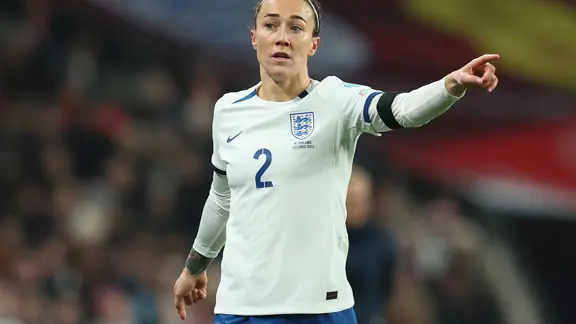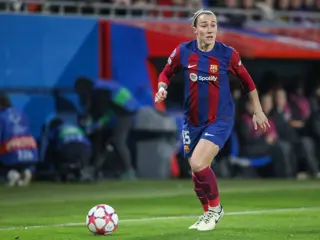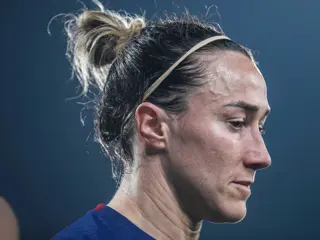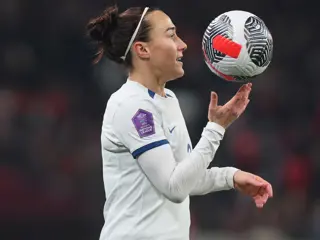News
Lucy Bronze: "Players need to be more aware why ACL injuries happen"

England and Barcelona defender Lucy Bronze has witnessed first-hand the impact Anterior Cruciate Ligament (ACL) injuries have had on team-mates and understands the long-term effects of the highly publicised injury in women’s football.
The right-back, who studied ACL injuries as part of her degree from Leeds Beckett University, is supporting the announcement of Project ACL, in which FIFPRO, the Professional Footballers Association, Nike, and Leeds Beckett University are working together to accelerate research on the topic.
FIFPRO spoke to Bronze about the player voice being an integral part of Project ACL, as well as her own experiences of researching ACL injuries.
FIFPRO: Lucy, why did you choose to study ACL injuries at university. What did you find interesting and important about it?
Lucy Bronze: I wanted to do a study on knee injuries in women's football because that was what I was going through at that time and I had next to no support. My knowledge of what I was going through wasn't very good, so I thought that if I was going to do this, I might as well teach myself a little bit.
I never actually did my ACL, but at the time there was more on that than there were knee injuries in football. I learned a lot about prevention and rehabilitation of ACL injuries in women’s football. We need to keep doing more research because it was over a decade ago when I was studying that.
Is there anything that you think is missing from the conversation with regards to ACL injuries?
One of the key things people keep forgetting is that you're not going to eradicate any injury. What’s important to understand is that when there is research that is done, it's to help reduce the risk. It's like anything in life where bad things can happen and we don't want those bad things to happen – that’s why you wear a helmet on a bike or your seatbelt in the car – but, ultimately, things do happen.
There is a lot of conversation in the media about this and, for me, they try to point the finger at what’s to blame, but everybody has a role to play. We are all responsible – from players taking care of our own bodies, to coaches managing player-minutes and physios and sports scientists within clubs, to the federations who coordinate match schedules. Everybody plays their role in injuries and, specifically, how we can help reduce the risk of ACL.
Are ACL injuries spoken about a lot amongst players?
It probably is, largely because the recovery time is one of the longest. In terms of common injuries, it tends to be that if you've done your ACL, you've probably missed the next tournament or the rest of the season. For that reason, it’s spoken about a lot.
The recovery process is long, and even when you get back, I think there's an expectation that you are returning to your best. However, there’s another process after that where your body has changed a little bit because you've had to go through major surgery. Players feel a bit of a dread around this, and it’s something spoken about a lot because it affects our careers so much. Everybody goes through different experiences and everybody's bodies are different. It is therefore important to understand that it's not one size fits all for recovery – there are different processes that you can go through and there are different factors.
Why do you think Project ACL is important?
Project ACL is important because we need to start fine-tuning the information that we're putting out. There is already research, but I think there's just so much talk and a lot of wrong information out there.
There isn't a quick fix to eradicate ACL injuries in women's football; we need to finely tune research so that we can identify the key factors. A lot of players need to be more aware on the process of why ACL injuries happen and what can be done to reduce the risk. Just changing football boots is not going to fix anything. There are many things that can be done and it's important that the right information is available for players, their support systems, clubs and for the game in general.
Why is it important to base Project ACL’s key recommendations on player feedback?
The players are the ones that have to live with the feedback from this. The players play a big role and, ultimately, it’s our careers. It affects us more than anybody else, so it’s important that not only players have their feedback considered, but that the recommendations are implemented in the correct way to suit players and allow them to follow best practice.



